Early childhood is the ideal time to start developing literacy skills through play.
Children need to develop certain skills before learning to read, as this helps build a solid foundation for formal literacy skills.
Here’s some information on what early literacy is, how to develop it in 3-5-year-olds, 17 early literacy skills for preschoolers, and 50 ways to nurture these pre-literacy skills.
What is Early Literacy?
You can begin helping your children develop pre-reading skills from an early age. When you answer your babies by babbling back to them, you are already teaching communication and language.
Early literacy is a combination of certain skills and knowledge to help children learn to read. It includes being aware of both language and writing skills.
It involves understanding the process and purpose of writing. Early literacy also involves developing listening comprehension, an awareness of print, and phonological awareness.
With time and exposure to books and language, children start to understand that phonemes (sounds) and graphemes (symbols) make up reading.
Children will also develop excitement and an interest in books, and a motivation to learn to read. This is a crucial step in the process, or else teaching them to read will not be meaningful.
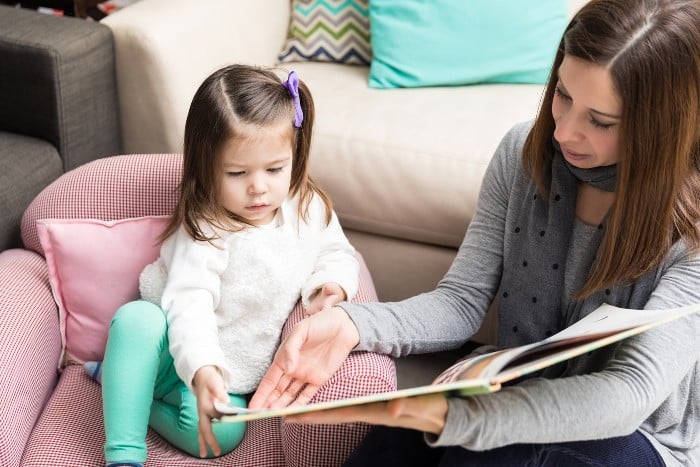
Early Literacy Skills List
Children need to develop skills such as visual literacy, visual and auditory discrimination, and many more that aid in their progression throughout school.
Here is a brief explanation of each skill your children should start to develop early on.
1. Visual Memory
Visual memory is the ability to remember what has been seen – important for learning sight words and letter formation and combinations.
2. Visual Discrimination
Visual discrimination is the ability to tell differences and similarities – especially in letters such as b and d, or similar words such as bad and dad.
3. Auditory Discrimination
With auditory discrimination, kids will be able to hear the differences and similarities in sounds and words.
4. Retelling a Story
Once you read or tell a story to your children, they need to be able to retell the story back to you.
They may retell the main idea or recount the beginning, middle, and end of the story, though not necessarily every detail.
5. Predicting Sequence
As a story unfolds, children should be able to predict what happens next and sequence the events.
6. Cause and Effect
Cause and effect is the understanding of why something happens and what action led to the outcome.
7. Picture Reading
This occurs when a child can read a story and understand it just by looking at the pictures. It also includes answering questions related to the story by only referring to the pictures.
A child can learn to deduce from the information in pictures. For example, even though the text does not say what time of day it is, the image suggests it is daytime since the sun is shining.
8. Visual Literacy
Visual literacy is the ability to understand and make meaning of information in the form of an image.
9. Matching
Matching is a skill many children excel at from an early age, especially when they engage in matching games.
It involves finding pictures or concepts that are similar to one another.
10. Focusing on Detail
This skill will help children to focus on smaller, less obvious details.
11. Sound Awareness
Sound awareness involves hearing and interpreting sounds.
It includes listening for sounds, identifying sounds, telling sounds apart and more.
12. Rhyme Awareness
Rhyme awareness is when a child can recognize what sounds and words rhyme. They also learn to say rhyming words.
13. Letter Knowledge
Children should be exposed to letters early on. Playing with physical letters is the most effective way to teach letter formation practically.
Learning how to form letters on a worksheet is part of formal reading and writing education and is not necessary during the early years before fine motor skills are properly formed.
14. Name Recognition
This is an exciting skill as a child can look at letters on a piece of paper, and read and recognise their name.
15. Pattern Recognition
Pattern recognition is when children can see a pattern.
They can see shapes and the relationship between them and can even predict the missing piece in the pattern.
16. Phonological Awareness
Phonological awareness refers to a child’s ability to hear specific sounds within a word.
It involves hearing sounds, breaking up sounds and putting them back together again.
17. Spatial Orientation
Spatial orientation is when children understand how their body functions in space. When they can orientate themselves, they can later apply this skill when reading and writing – for example, by spacing letters on a page.
Learning to Read
Learning to read is a complex process for young children that begins when a child is little. It is not a natural process like speaking; it is a skill that must be taught.
If you focus on building pre-reading skills through play during the early years right up to kindergarten, your children will find it much easier to learn the sounds and letters and start formal reading when the time is right.
Reading is not the only literacy skill. Literacy also involves writing, communicating and working with language for different purposes.
Emerging Literacy Skills in 3-4-Year-Olds
Here are some of the typical signs you will start to see when your 3-4-year-old is developing their literacy skills.
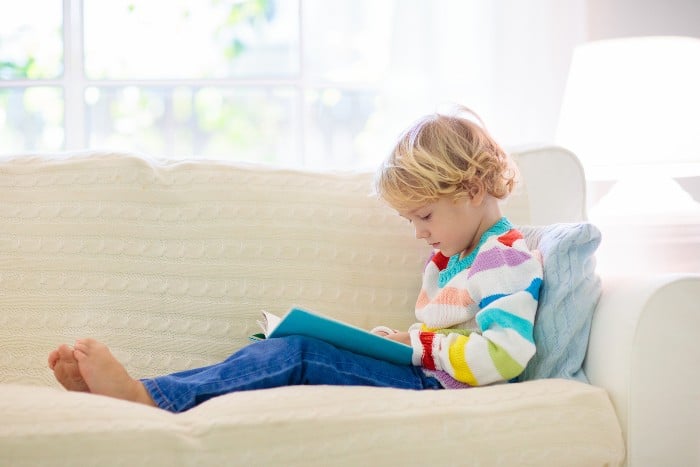
- Has one or two favourite books or rhymes.
- Points out to you when you make an error in their favourite story.
- Enjoys new stories and asks lots of questions.
- Can put the events of a story in sequence.
- Enjoys listening to bedtime stories.
- Recognises the letters in their name.
- Can ‘write’ by scribbling.
- Can find a book when asked.
Emerging Literacy Skills in 4-5-Year-Olds
Here are some signs that a 4-5-year-old is developing their literacy skills:
- Knows their favourite book by its name.
- Knows a section of their favourite book.
- Prefers one book over another.
- Has a certain reading routine they follow at home and school.
- Understands the purpose of reading.
- Understands that the story remains the same.
- Talks about the story sequence.
50 Ways to Help Children Develop Early Literacy Skills
Here are some ways to help children develop those crucial pre-literacy skills. They are easy ideas you can incorporate daily to make sure they develop those skills necessary for reading and writing.
- Have frequent conversations with your children.
- Sing songs.
- Read stories.
- Ask children to retell a story.
- Learn fingerplays.
- Create a book corner in your children’s bedroom.
- Play language games.
- Model a love for books by also reading books yourself.
- Make up your own story.
- Point out road signs while driving.
- Ask children to identify the author and illustrator of each book.
- Bake cookies in the shape of different letters.
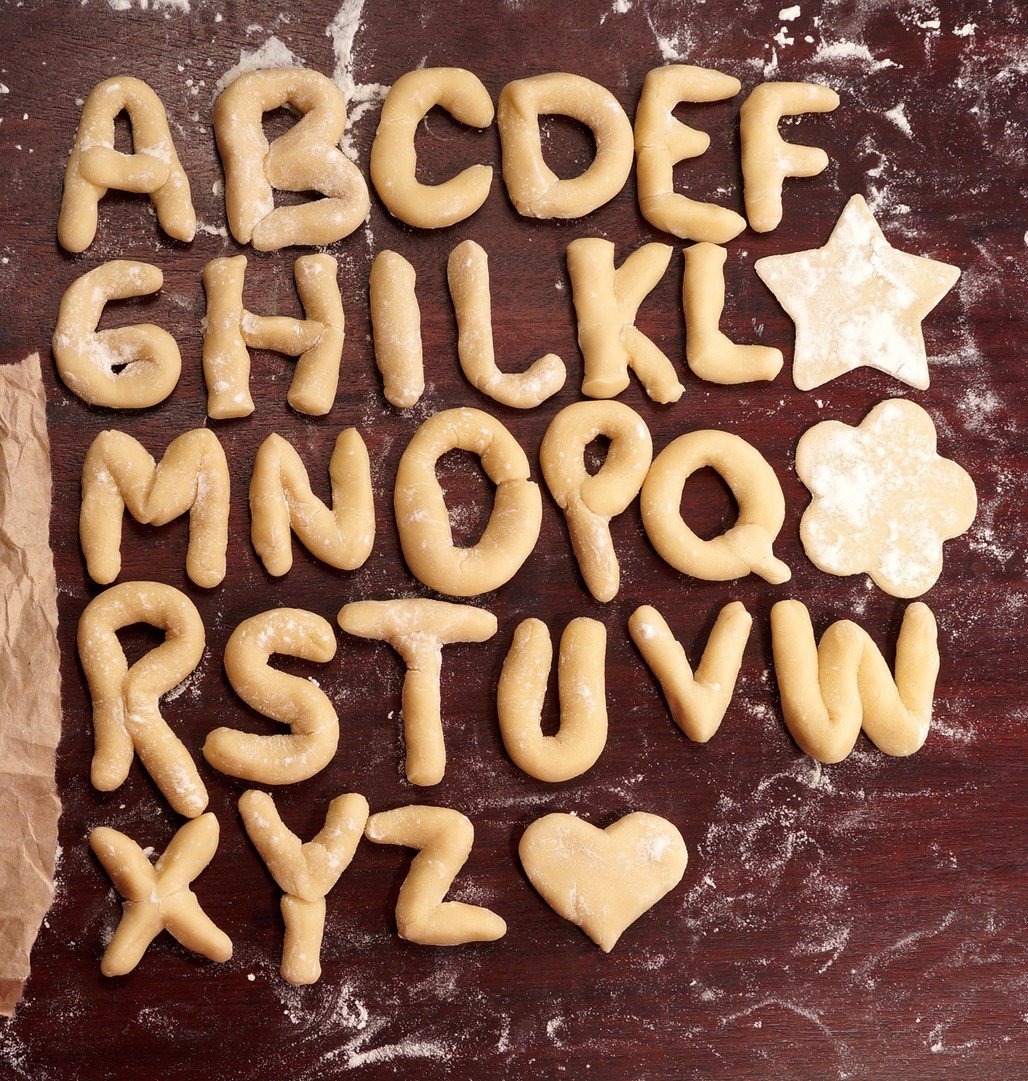
- Sing the alphabet song.
- Have children mimic you as you say the sounds of each letter.
- Make “listen to the sound” boxes for each letter.
- Play a musical guessing game.
- Clap to different rhythms and songs.
- Play an auditory story or read a book out loud, then discuss.
- Ask questions about the stories you read.
- Make up a story with a beginning, middle and end.
- Point to parts of a word and ask what the sound is.
- Do the Hokey-Pokey Dance.
- Play Simon Says by only using body parts.
- Paint rocks with each letter of the alphabet.
- Play a matching game.
- Go to the library to get new books regularly.
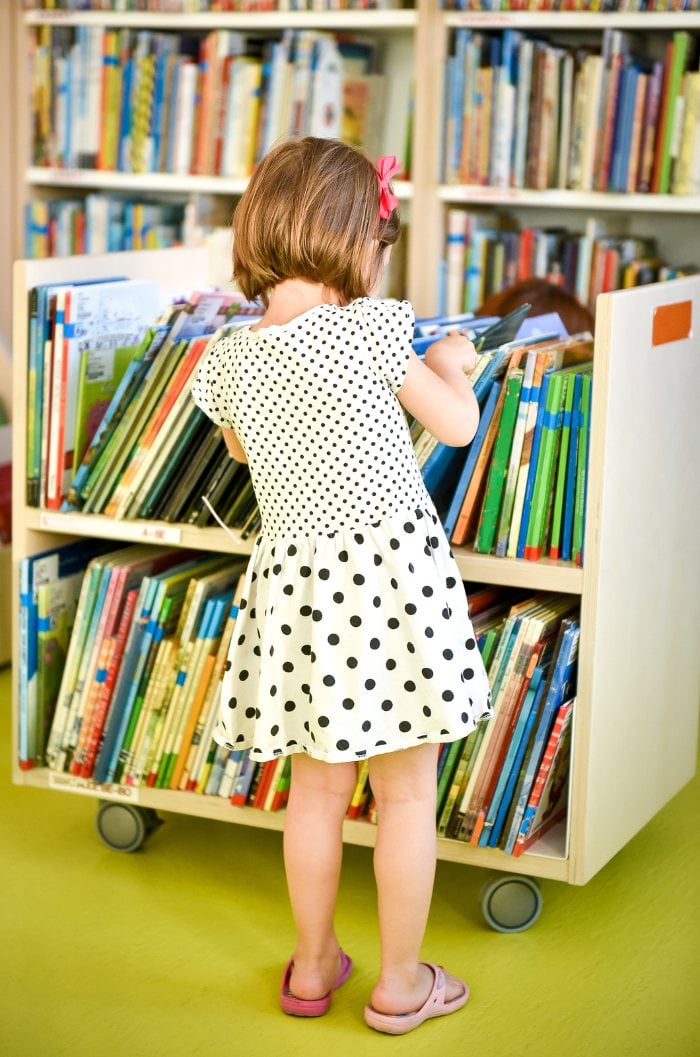
- Circle the differences between two pictures.
- Show children a picture. Come up with a story about that picture.
- Put labels on common household items.
- Have children write their names on each picture they draw.
- Have them create a storybook with pictures and words.
- Let kids tell you a story from the pictures in a book.
- Make letter boards.
- Play games involving letters and their sounds.
- Write a letter to a family member.
- Play ‘shop’ and have your children write out receipts.
- Play with foam or plastic alphabet letters.
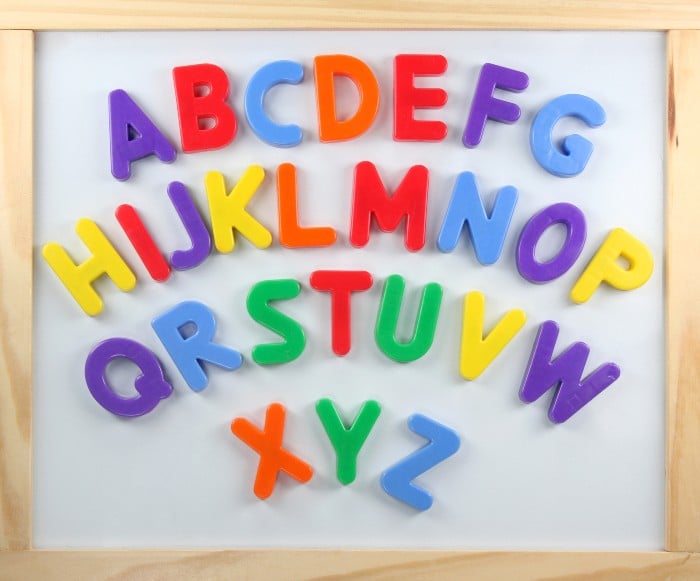
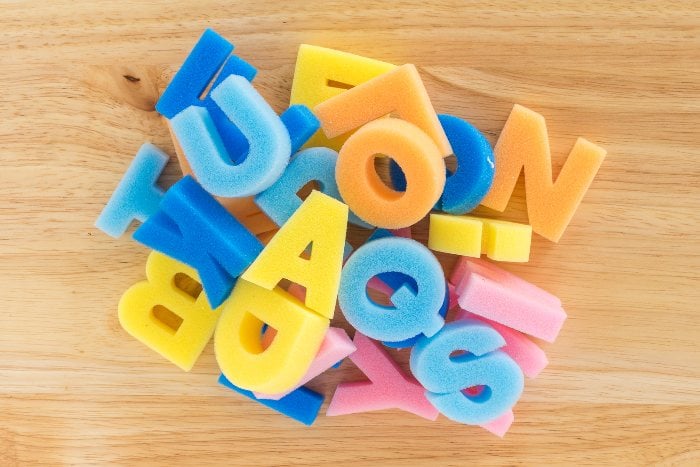
- Say a sound and have children guess the correct letter and vice versa.
- Complete an alphabet or word puzzle.
- When making crafts, have kids read step-by-step instructions.
- Make up rhyming songs together.
- Sing nursery rhymes.
- Practise writing letters in a tray of salt.
- Play a rhyming game.
- Read instructions out loud to show their importance.
- Connect the dots to form letters and words.
- Write words on the fridge using magnetic letters.
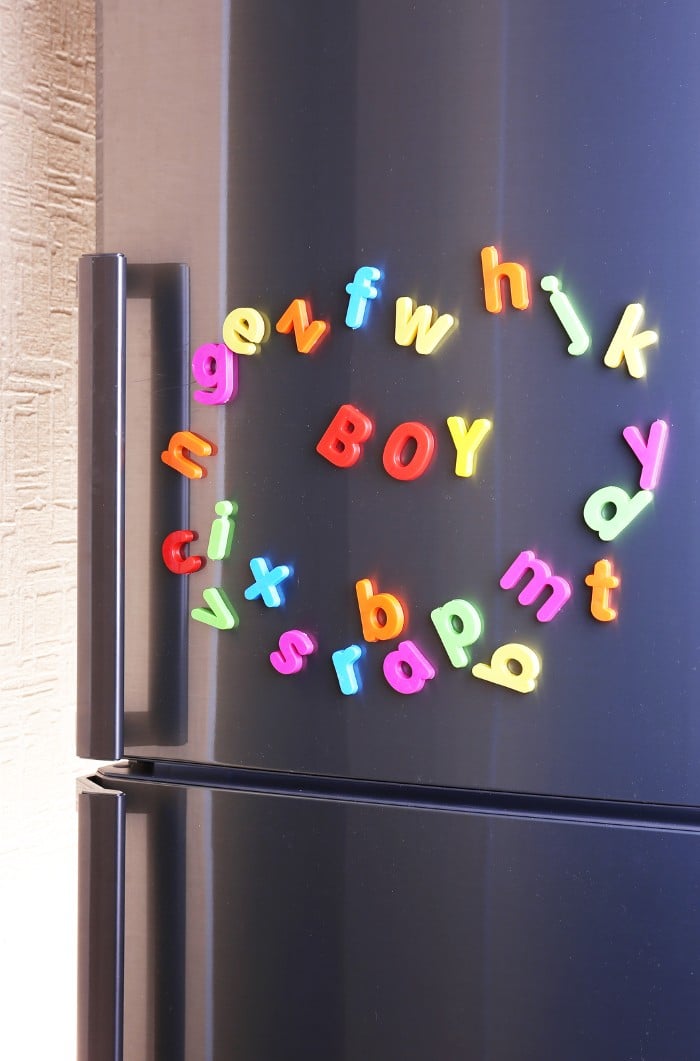
- Make a sensory box filled with items that begin with the same letter. Then, your children must say each item.
- Play Scrabble with your kids using easy words.
- Tell a story without an ending, then have children make up the end.
These are just a few simple ways you can help develop those vital early literacy skills. Incorporate these simple activities into your daily routine. After a while, they will become a natural part of your daily schedule.
By focusing on these activities, children will be prepared to read and succeed when they start school.
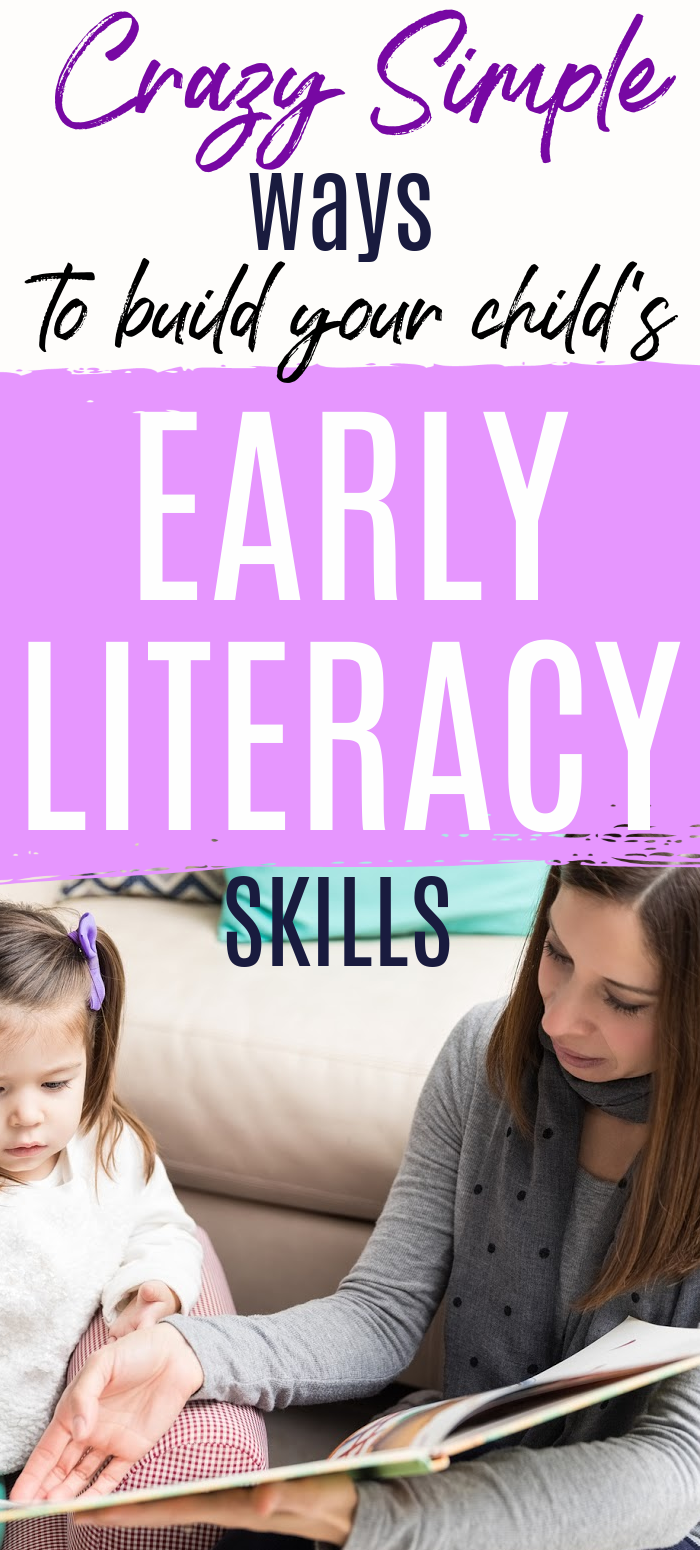
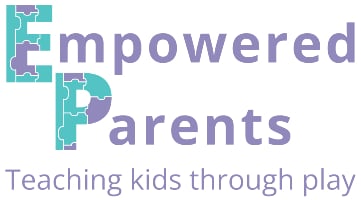
Ruth Kipchumba
Friday 13th of August 2021
Thanks for the generous information Tanja,this is soo helpful for my kids am really looking for more information on speech and language development. warm regards